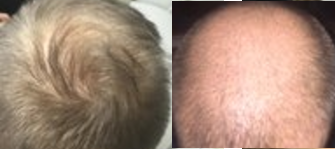I am a 23 year old female considering having my hairline surgically lowered. What I am wondering about is shock loss with this type of procedure. How often does this problem occur and how much hair is usually lost when it does happen? Are there any factors, besides female pattern baldness, that increase the risk of this side effect? Also, do you recommend using Minoxidil to lessen the possibility of fallout, and is it safe if there are no signs of FPB? (The label says not to, but doesn’t say the exact reason why.)
Thank you for your time!
There are no published numbers of the shock hair loss risk after a hairline lowering procedure. This may also depend on the surgeon who performs the surgery and his/her expertise with it. This is a question that should be reserved to the doctor who may be doing your surgery, asking for his/her experience with shock loss and the surgery.
Assuming (worst case) that hair loss occurs, it could be caused by just the manipulation of the hairline and if it did, it should return. If it is caused by too much tension at the suture line, it might not return. Experienced surgeons know this and rarely put much tension on the suture line.
You should also be well informed about other options such as hair transplants to lower the hairline. I do not believe minoxidil will have a significant impact on shock loss.

